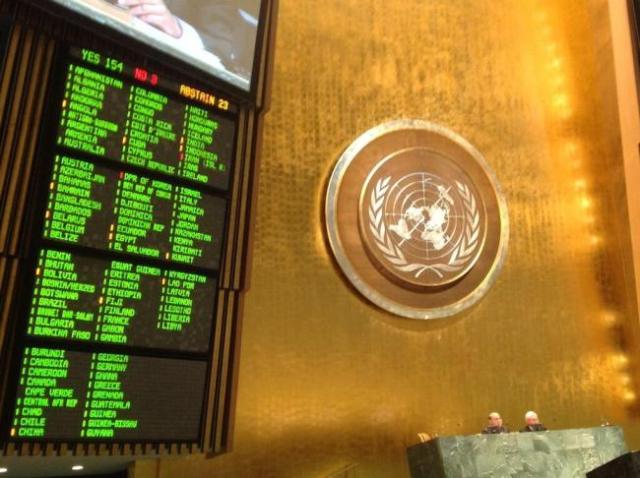 Urgent call from campaigners for extra push from states – especially African countries – to ratify and help treaty enter into force and save lives
Urgent call from campaigners for extra push from states – especially African countries – to ratify and help treaty enter into force and save lives
New York, June 3 2014: Campaigners say the Arms Trade Treaty which will control the poorly-regulated trade in weapons and ammunition is more urgent now than ever before as the death toll in conflicts across the globe mounts inexorably.
It is now exactly one year since the pioneering Arms Trade Treaty (ATT) opened for signature. Today, around 10 states including Australia, Austria, Belgium, Luxembourg, Samoa and St Vincent and the Grenadines are due to ratify at a special ceremony at the United Nations headquarters, in New York. They join a growing group of states who have already ratified including major arms exporters France, Germany and the UK.
This will bring the total number of states that have ratified the treaty to date to around 42 – with just eight more to go for the 50 needed for the ATT to enter into force.
Dr Robert Mtonga, from the Control Arms Coalition, said: “The geographic spread of states ratifying today – from Africa, Europe, the Caribbean and the Pacific – shows clearly that this is a treaty with global support. We now need all these states, as well as all others who have signed the ATT, to live up to its aims and implement tough controls on the $85bn arms trade.
“Today’s ceremony marks another significant milestone on the road towards the Arms Trade Treaty – but we are not there yet. At least eight more states are needed to ratify for the ATT to enter into force and become international law. We are particularly urging African states who played a key role in the negotiations to secure the ATT to now ratify the treaty as soon as possible.”
Under the ATT, states must assess the risks of weapons and ammunition being misused to commit human rights abuses or violations of humanitarian law, before they can authorize transfer.
The ATT is the first internationally-binding agreement to regulate the global trade in arms and ammunition. More than 500,000 people are killed every year by armed violence and millions more live in fear of rape, assault and displacement caused by weapons getting into the wrong hands.
People living in conflict zones across the world are paying a high price for the poorly-regulated trade each day. For example in the world’s newest country, South Sudan, the complex situation is being aggravated by a huge number of small arms and light weapons in the country which fuel conflict from the village to the national level.
Thousands of lives have already been lost this year in South Sudan and over 1.3 million have fled their homes, yet more and more weapons continue to flood into the country each day, fuelling the violence. Many are anxious to return home in spite of the growing humanitarian crisis, but fear for their safety as gross human rights violations – ethnic killings, rape, revenge attacks and the deliberate targeting of children – are taking place daily.
Anna Macdonald, from the Control Arms Coalition said: “South Sudan is just one current example of why there is an urgent need for the ATT. Men, women and children around the world are living in fear of the risk of rape, assault, displacement and death as a result of the unregulated arms trade.
“There is clear political will for the ATT to enter into force and this is underlined by the rapid rate at which it is being ratified. But the ATT must be more than words on paper, states must now deliver on their commitments and ensure it is implemented robustly, setting high standards to bring the arms trade under control.”
ENDS